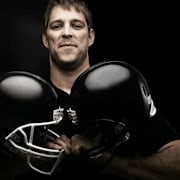Mastering Triathlon Nutrition: Parker Spencer’s Insights on Fueling Performance on Power Athlete Radio

For elite athletes like triathletes, the synergy between training and nutrition is critical. On a recent clip of Power Athlete Radio, Parker Spencer, the USA Olympic triathlon coach, shed light on the intricacies of diet, metabolism, and their pivotal roles in athletic performance. Spencer’s insights reveal that while there is no one-size-fits-all approach to nutrition, understanding and optimizing metabolism is the key to unlocking an athlete’s full potential.
Understanding Metabolism and Individualized Nutrition
According to Spencer, metabolism lies at the heart of training, eating, and performance. Each athlete’s metabolic profile is unique, demanding a personalized approach to nutrition. “It’s not about prescribing a universal diet,” Spencer emphasized. Instead, it’s about tailoring dietary strategies to meet the specific demands of the sport and the individual’s physiology.
For endurance athletes like triathletes, carbohydrates often play a crucial role due to their necessity in sustaining energy levels during prolonged efforts. However, Spencer advocates for understanding how an athlete’s body processes and utilizes macronutrients, rather than blindly adhering to a high-carb or low-carb regimen. The goal is to fuel the body efficiently, balancing the need for performance with long-term metabolic health.
Low-Carb, High-Fat Diets for Ironman Competitors
Spencer shared a key strategy for his Ironman athletes: a low-carb, high-fat diet. This approach encourages the body to adapt to using fat as a primary energy source, which is particularly advantageous in ultra-endurance events where glycogen stores can deplete over hours of activity. By training the body to rely on fat, athletes can maintain consistent energy levels and reduce their dependence on carbohydrate intake during races.
However, this strategy is not without its challenges. Transitioning to a low-carb, high-fat diet requires careful monitoring and adaptation. Athletes must strike a delicate balance, ensuring they consume sufficient carbohydrates to support high-intensity efforts while maintaining the benefits of fat adaptation. Spencer noted, “It’s all about understanding what your metabolism needs and how to improve it for better performance.”
The Glycolytic Threshold and Carb Intake
The role of carbohydrates becomes more pronounced in high-intensity efforts that push athletes into their glycolytic threshold. At this point, the body relies heavily on glycogen stored in the muscles, making carbohydrate intake essential for peak performance. Spencer highlighted that for athletes operating in this energy system, depriving the body of carbohydrates could hinder performance and recovery. “It would suck to not have carbs available when you need them,” he remarked, underscoring the importance of strategic carbohydrate intake even within a low-carb framework.
A Holistic Approach to Triathlon Nutrition
Spencer’s philosophy reinforces that triathlon nutrition is not about rigid rules but about adaptability and precision. Athletes must listen to their bodies, work with coaches to fine-tune their diets, and understand how their unique metabolisms respond to different fueling strategies. Whether it’s optimizing fat utilization for endurance or ensuring adequate carbohydrate intake for high-intensity efforts, the ultimate goal is to create a sustainable and effective nutritional plan.
Individualized nutrition for Olympic athletes must take into account rigorous training and the demands of competition. With a nuanced approach, athletes can achieve the metabolic efficiency needed to excel in triathlons. As Spencer aptly put it, “It’s all metabolism.”
